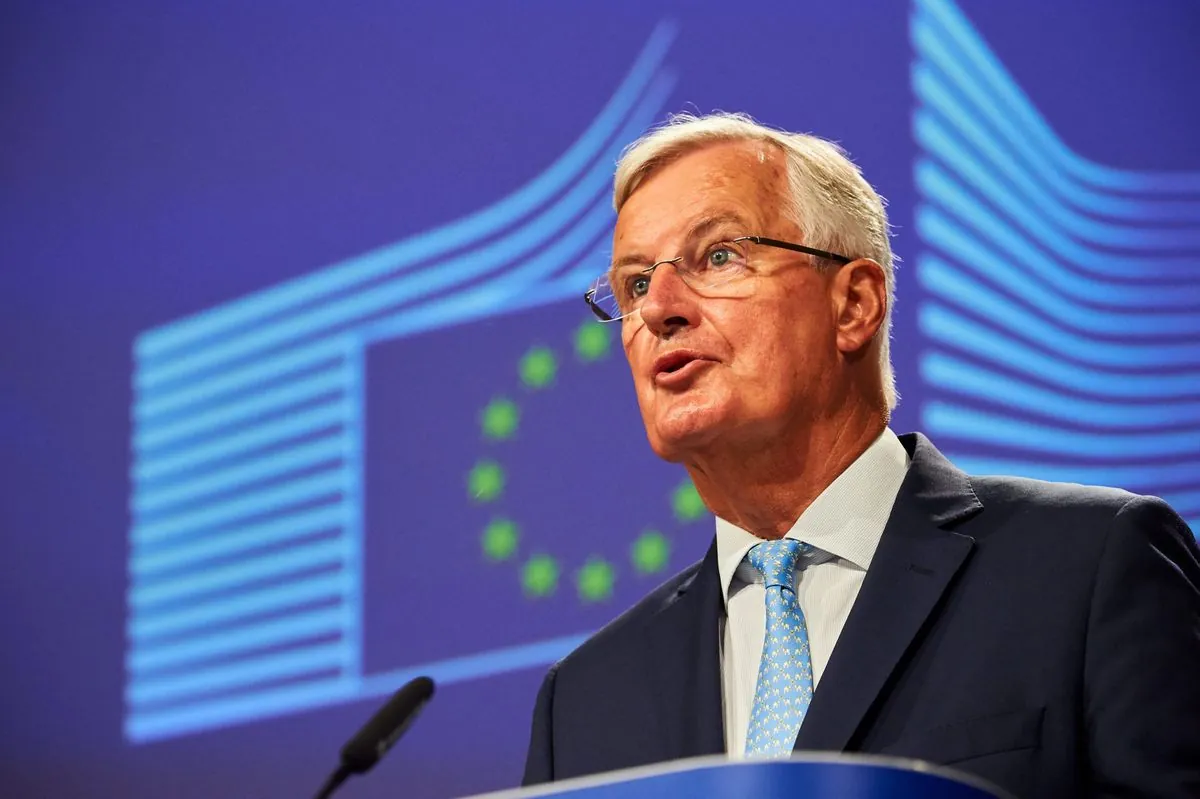Michel Barnier Tops French Popularity Poll Amid Government Formation Struggles
Former EU Brexit negotiator Michel Barnier leads French popularity rankings as he grapples with forming a new government. Tensions rise over potential tax increases and budget deficit concerns.

Michel Barnier, France's recently appointed Prime Minister, has unexpectedly emerged as the country's most popular political figure, according to a new poll. This development comes as Barnier faces the challenging task of forming a government following inconclusive elections in July.
The Ifop-Fiducial survey reveals Barnier's approval rating at 57%, surpassing his predecessors Edouard Philippe, Gabriel Attal, and Jean Castex. In contrast, President Emmanuel Macron ranks 44th with a 31% approval rating.

Barnier's appointment by Macron two weeks ago aimed to break a two-month political deadlock. However, the move has sparked controversy among various political factions. The left-wing New Popular Front coalition, which won the most seats but fell short of a majority, expressed strong opposition. Conversely, Marine Le Pen's National Rally, the single party with the largest seat count, has reportedly signaled a willingness to consider cooperation.
The political landscape in France has become increasingly complex, with parliament split into three main blocs. This fragmentation poses significant challenges for Barnier as he attempts to secure a working majority.
"French people want more justice" in terms of fiscal policy.
Tensions have emerged between Barnier and Macron's allies over potential tax increases. Barnier has described France's budgetary situation as "very serious," hinting at the possibility of raising taxes. This stance has met resistance from Macron supporters and right-wing Republicans, who are expected to be part of the new cabinet.
France's public deficit is projected to exceed 6% of GDP in 2025, far above the EU's 3% limit. This situation has triggered the EU's "excessive deficit procedure," requiring France to negotiate a plan to address its fiscal imbalances.
The challenge of reducing the deficit while maintaining economic growth has sparked debate among French officials. Bruno Le Maire, the outgoing finance minister, has proposed bringing the deficit below 3% by 2027, a target that many analysts consider unrealistic.
As Barnier navigates these complex political and economic challenges, his popularity surge adds an intriguing dimension to France's evolving political landscape. The coming weeks will be crucial in determining whether he can translate this public support into effective governance and economic reform.


































